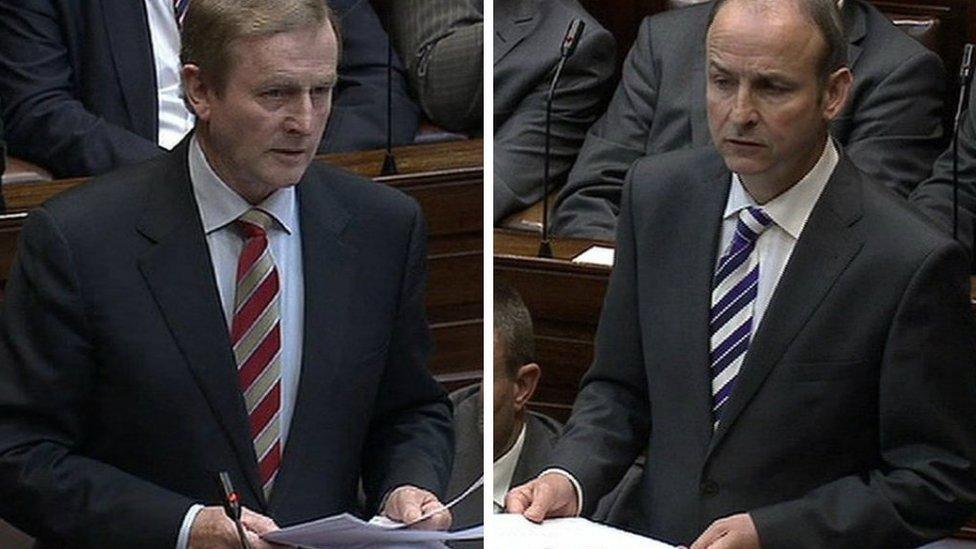Irish election: Rivals Fine Gael and Fianna Fáil to discuss forming new government
- Published
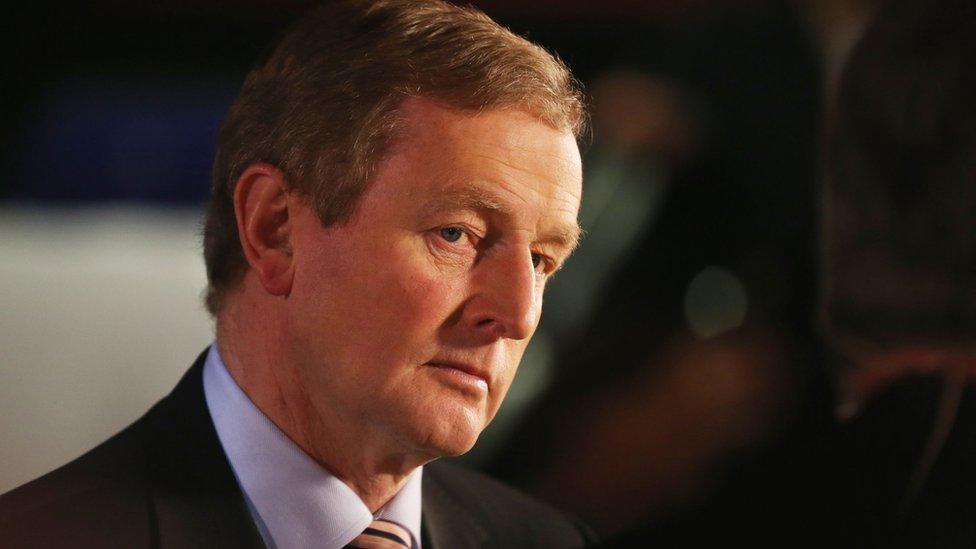
Irish Prime Minister Enda Kenny has said he will talk all parties including his party's biggest rival, Fianna Fáil, in a bid to form a new government.
No party won enough seats in Friday's general election to govern alone.
The final two seats in the 158-member parliament (Dáil) have yet to be won, but Mr Kenny's Fine Gael remains the biggest party with at least 49 seats.
It has a very narrow lead over its former civil war enemy, Fianna Fáil, which will have at least 44 seats.
The two largest parties in the Republic of Ireland both have their roots in the bitter 11-month conflict that broke out in June 1922, just months after the island of Ireland was partitioned.
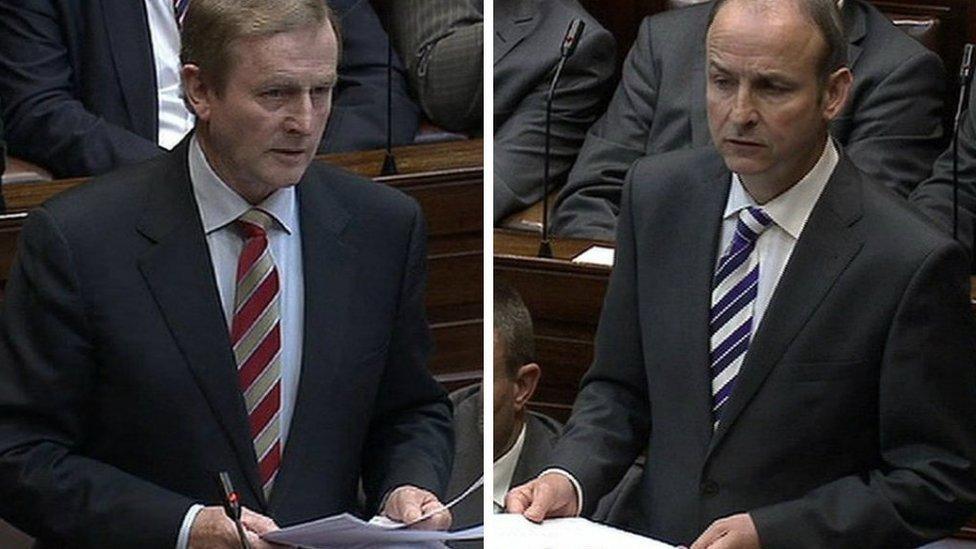
The current Irish Prime Minister (Taoiseach) Enda Kenny leads the Fine Gael party while Micheál Martin (right) is the leader of the largest opposition party, Fianna Fáil
Fianna Fáil and Fine Gael have dominated Irish politics since the early 1930s but they have never been in a formal coalition.
At present, any new government will needs the support of nearly 80 elected members (called Teachtaí Dála or TDs) and both of the biggest parties are more than 30 seats short of the target.
Mr Kenny remains as prime minister (taoiseach) in a caretaker capacity until he or other party leaders gain enough support to form a ruling coalition.
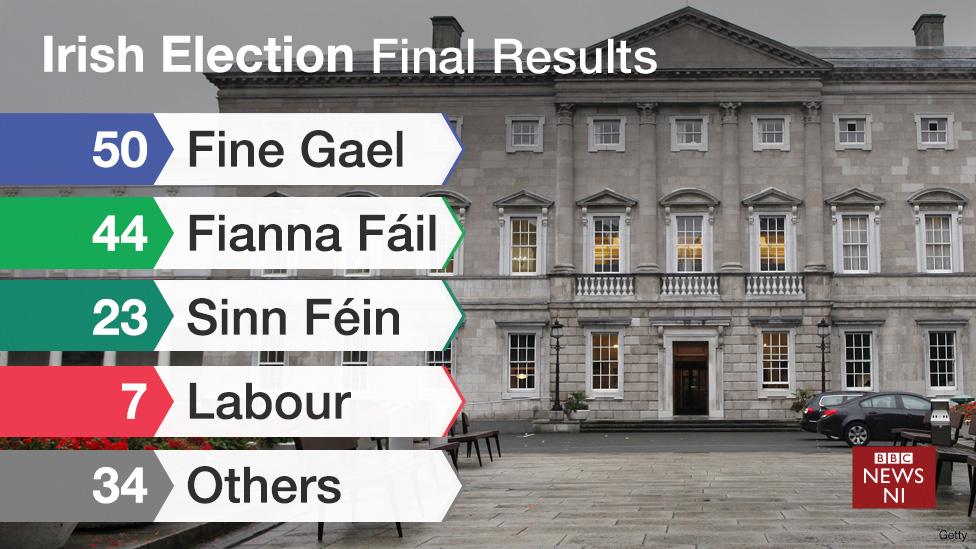
Speaking to journalists on Wednesday, Mr Kenny said it had been a "bruising election" for his party but he would continue to seek to provide a new government in the interests of the Irish people.
"The numbers in the Dail (parliament) in the way that they're now falling through make it difficult to put forward a proposition for government," he said.
"As the leader of the largest party, and as the taoiseach it's my responsibility to work to see that that process is put in place, and that includes talking to the Fianna Fáil party."
The prime minister also added: "No one wants a second election."
- Published1 March 2016
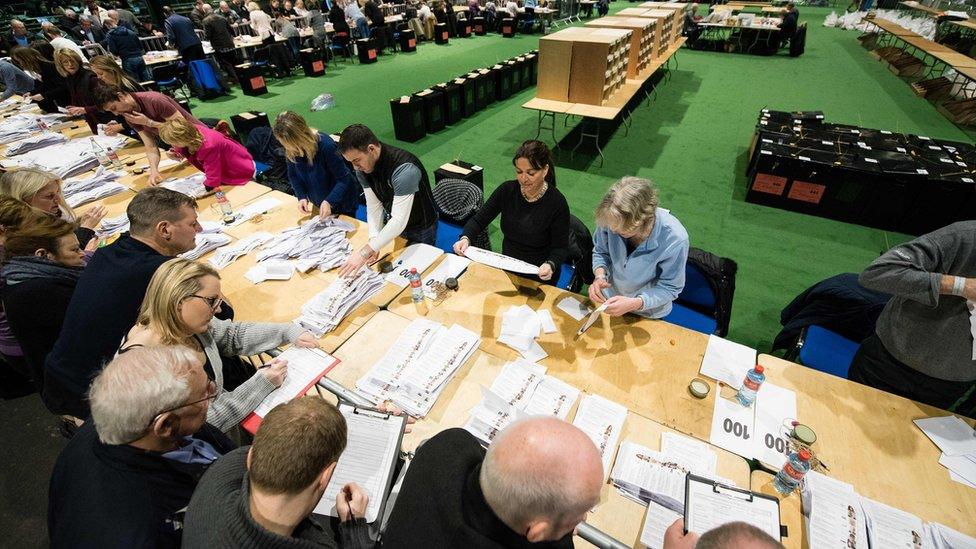
- Published28 February 2016
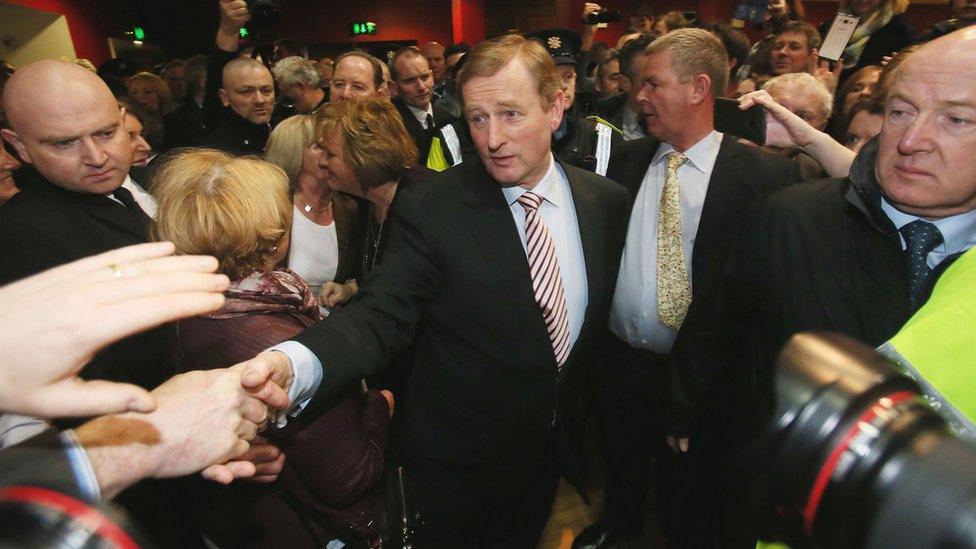
- Published24 February 2016
